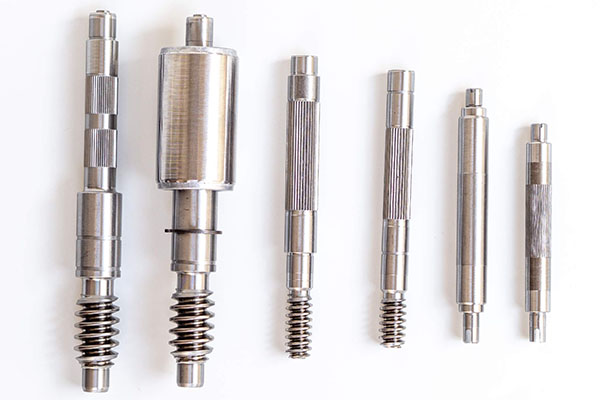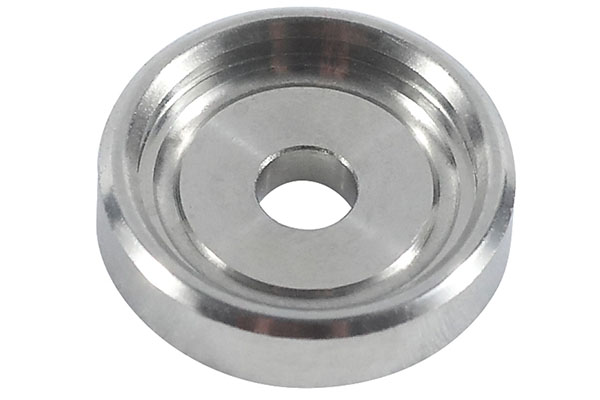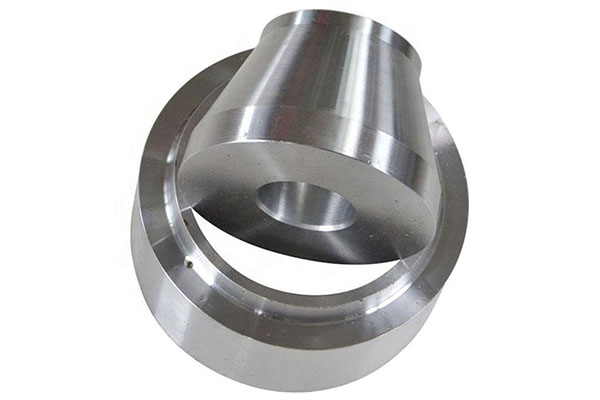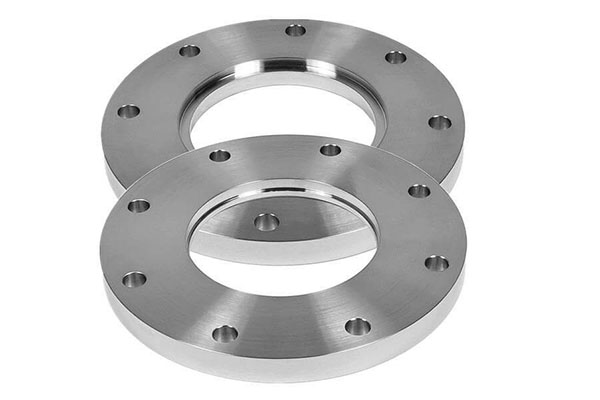مواد قطع غيار معدنية من الفولاذ المقاوم للصدأ
Stainless steel is a type of alloy steel that's really good at resisting corrosion. It's mostly made up of iron, chromium, and nickel. Depending on what it's made of and how it's put together, stainless steel comes in different series, each with its own special uses.
The reason stainless steel doesn't rust easily is because of the chromium in it. When there's enough chromium, a tough layer called an oxide film forms on the surface. This layer stops the steel from rusting further. Besides being rust-resistant, stainless steel is also strong, hard, flexible, and tough, which makes it super useful in many industries.
You can find stainless steel in lots of places, like buildings, cars, planes, hospitals, food factories, and chemical plants. For example, in construction, it's used for roofing, and frameworks. In car manufacturing, it's found in exhaust systems and body parts. Planes use it for engine parts and fuselage because it's strong and doesn't rust easily. Hospitals use it for surgical tools and implants. Food factories use it to make equipment and containers. And in chemical plants, it's used for making storage tanks, pipelines, and reactors.
In summary, stainless steel is a high-performance material that's essential in today's industry. As technology improves and market needs change, the types and uses of stainless steel keep growing and getting better.
الفولاذ المقاوم للصدأ قطع غيار المعادن خدمة صنع
Be good at product structure optimization and greatly reduce the cost of Stainless Steel Metal Parts Materials

تصميم الأجزاء
التصميم الجمالي و الهيكلي

صنع القوالب
التصميم، تأكيد التصنيعية

إنتاج المنتجات
Imported, high-speed equipment

تجميع المنتجات
مواد أولية ، فحص وتركيب
تصنيف نموذج مواد الأجزاء المعدنية من الفولاذ المقاوم للصدأ
Main models: 201, 202.
Features: Low nickel content, good cold working performance and certain corrosion resistance.
Application: Commonly used in fields such as architectural decoration, railway vehicles, aviation, etc.
Main models: 301, 304, 316.
Features: High nickel content, excellent corrosion resistance, heat resistance, and weldability.
Application: Widely used in industries such as chemical, food, and medical devices.
Main models: 409, 410, 430.
Characteristics: It does not contain nickel or contains a small amount of nickel, and has good heat resistance and oxidation resistance.
Application: Mainly used in high-temperature environments such as automotive exhaust systems and household appliances.
Including martensitic stainless steel, ferritic stainless steel, duplex stainless steel, etc.
Characteristics: Each has its own unique performance and application areas.
Applications: such as cutting tools, springs, building structures, etc.
Machining Process of Stainless Steel Metal Parts
There are many ways to work with stainless steel, and each method has its own special use and needs. Cutting is one common way, and it includes flame cutting, plasma cutting, and laser cutting. Flame cutting works well for thick stainless steel plates but heats up a big area. Plasma cutting is fast but not very precise. Laser cutting is very accurate but costs more.
Cold bending uses machines to bend stainless steel without heating it, making different shapes. This is great for making complex parts like pipes and containers.
Welding is another important process, and common methods include manual arc welding, argon arc welding, and plasma welding. The right materials and settings are needed to ensure good welds that won't rust easily. For example, manual arc welding works for thin plates and small pipes, while argon arc welding is better for thicker plates and larger pipes.
Changing the surface of stainless steel is also key. Techniques like brushing, mirror finishing, sandblasting, titanium/zirconium coating, etching, and anti-fingerprint treatment can change how the surface looks and feels. Brushing gives a fine texture, mirror finishing makes it shiny, and sandblasting adds grip.
Machining involves cutting methods like turning, milling, and drilling. These use tools to shape stainless steel into the desired form. Turning is used for round parts, milling for flat or curved surfaces, and drilling for holes.
Chemical processes like corrosion, electrolysis, and chemical polishing can achieve the perfect surface and size. Controlling things like chemical concentration, temperature, and time is crucial for quality. Corrosion removes oxide layers, electrolysis improves flatness, and chemical polishing makes the surface shinier.
Thermal processes like hot rolling, forging, and heat treatment change stainless steel at high temperatures to get the right shape and properties. Hot rolling thins plates and strengthens them, forging makes parts denser and tougher, and heat treatment adjusts hardness and toughness.
3D printing is suitable for complex stainless steel parts where precision isn't critical. It creates parts directly from computer models without needing molds or tools. However, 3D printing isn't very precise and often requires polishing to improve appearance.
For high-precision stainless steel parts, CNC machining is used. This method uses computer technology to control tool movements accurately for high-quality results. Although CNC machining is expensive, its precision and efficiency make it ideal for high-end components in industries like aerospace and automotive manufacturing.
FAQ About Stainless Steel Metal Parts
Stainless steel parts are components made from stainless steel, which is a type of alloy known for its corrosion resistance and strength. These parts are widely used in various industries due to their durability, ability to withstand harsh environments, and aesthetic appeal. They're commonly found in everything from kitchen appliances to automotive components and construction materials.
Choosing stainless steel parts over other materials comes down to several key benefits. Firstly, they don't rust or corrode easily, making them perfect for outdoor use or areas exposed to moisture. Secondly, they're incredibly strong and durable, able to handle heavy loads without breaking. Lastly, they look sleek and modern, adding a touch of elegance to any project. Plus, they're easy to clean and maintain, saving you time and effort in the long run.
Taking care of stainless steel parts is pretty straightforward. Regular cleaning with mild soap and water usually does the trick. Avoid using abrasive cleaners or scrubbers that can scratch the surface. For tougher stains, a bit of baking soda and vinegar can work wonders. Just make sure to dry the parts thoroughly after cleaning to prevent water spots. With a little bit of care, your stainless steel parts will stay looking great for years to come.
Absolutely! One of the great things about stainless steel parts is how customizable they are. Whether you need a specific size, shape, or finish, manufacturers can tailor these parts to meet your exact requirements. This flexibility makes stainless steel an ideal choice for a wide range of applications, from industrial machinery to architectural designs. Just let the experts know what you need, and they'll take care of the rest.
Yes, stainless steel parts are considered environmentally friendly for several reasons. First off, they're highly recyclable, meaning old parts can be melted down and reused to create new ones without losing quality. This reduces waste and conserves natural resources. Additionally, because they last so long, they reduce the need for frequent replacements, further minimizing environmental impact. So, by choosing stainless steel parts, you're not only getting a high-quality product but also doing your part for the planet.
Finding high-quality stainless steel parts isn't hard if you know where to look. Start by checking out reputable suppliers online or in your local area. Look for companies with good reviews and a track record of reliability. Don't be afraid to ask for samples or certifications to ensure you're getting the real deal. And remember, it's always a good idea to compare prices and services to find the best deal. With a little bit of research, you'll be able to find the perfect stainless steel parts for your needs.